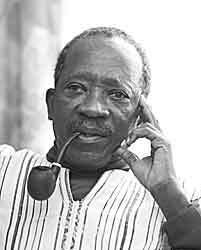A Quote by John Irving
It's a no-win argument - that business of what we're born with and what our environment does to us. And it's a boring argument, because it simplifies the mysteries that attend both our birth and our growth.
Related Quotes
We are not born all at once, but by bits. The body first, and the spirit later; and the birth and growth of the spirit, in those who are attentive to their own inner life, are slow and exceedingly painful. Our mothers are racked with the pains of our physical birth; we ourselves suffer the longer pains of our spiritual growth.
In our society, talking about sex is still a taboo, and of course many village chiefs don't want to hear about that issue. "You are trying to deviate us from our way of life, our traditions." And of course the argument they give is that these traditions date back to before our birth, and actually they accuse us of being funded by the outside world to subvert their way of life.
We are here to learn lessons and our birth chart tells us what our lessons are, what type of energy we possess in the first place, and how, by facing up to the challenges presented to us in life, spiritual growth will ensue. The birth chart is a 'tool' to guide us through our life. By understanding our basic make up, we can learn to make the most out of our positive points and try to improve on our weaker ones.
A good piece of fiction, in my view, does not offer solutions. Good stories deal with our moral struggles, our uncertainties, our dreams, our blunders, our contradictions, our endless quest for understanding. Good stories do not resolve the mysteries of the human spirit but rather describe and expand up on those mysteries.
The great merit of Stephen Gould's account of the disastrous history of phychometrics is that he shifts the argument from a sterile contest between environmentalists and hereditarians and turns it into an argument between those who are impressed with what our biology stops us doing and those who are impressed with what it allows us to do.
All men and women are born, live, suffer and die; what distinguishes us one from another is our dreams, whether they be dreams about worldly or unworldly things, and what we do to make them come about... We do not choose to be born. We do not choose our parents. We do not choose our historical epoch, the country of our birth, or the immediate circumstances of our upbringing. We do not, most of us, choose to die; nor do we choose the time and conditions of our death. But within this realm of choicelessness, we do choose how we live.







































